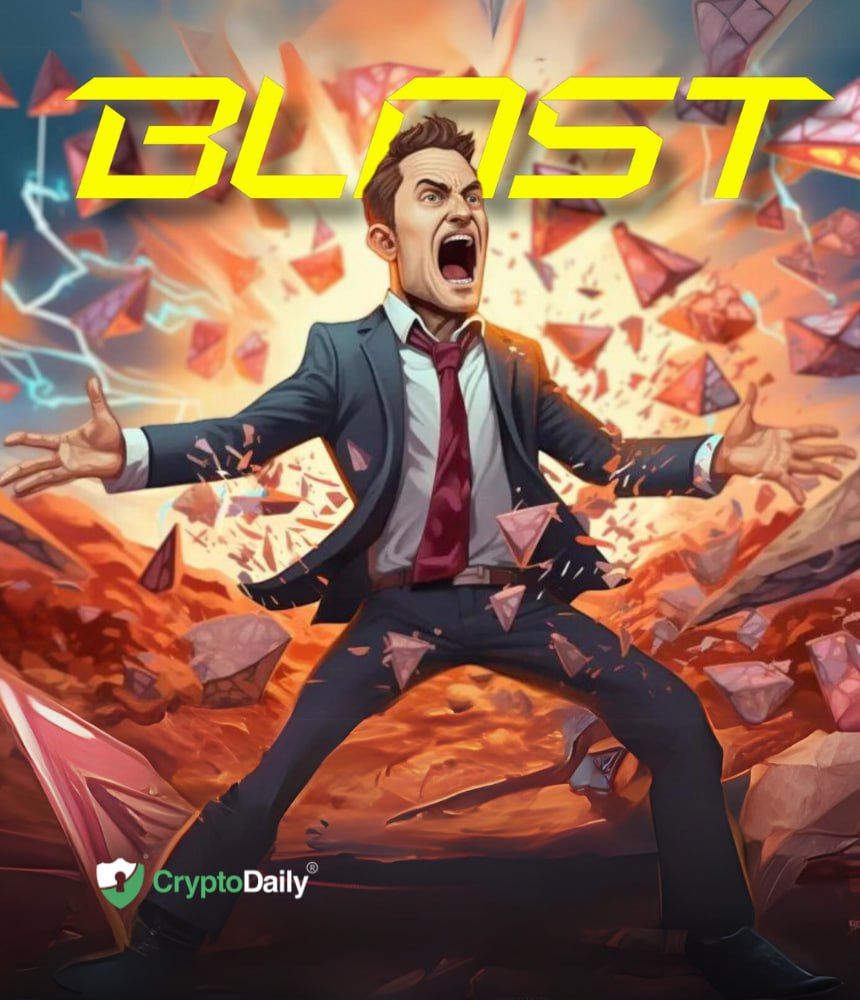Despite The Hype, Ethereum L2 Blast Has Crypto Users Divided


İçindekiler
Table of Contents
Ethereum Layer-2 Blast has created unprecedented hype on social media and has seen over $225 million in staked ETH (stETH) and stablecoins deposited since Monday, despite withdrawals being shut until March.
With the influx of liquidity, Blast has become the seventh-largest holder of staked ETH.
Blast Faces Skepticism Despite Hype
Blast, a layer-2 blockchain that is set to go live in March, has attracted over $225 million worth of staked ETH (stETH) and stablecoins. However, it has received considerable backlash and skepticism from many crypto users and investors. Blast describes itself as the first layer-2 network that incorporates native staking. Blast plans to generate yield through ETH staking and real-world assets. Layer-2 networks are built on top of Layer-1 blockchains like Ethereum and help make transactions faster and cheaper.
The pseudo-anonymous @PacmanBlur heads the protocol. @PacmanBlur is also one of the founders of the Blur NFT marketplace. One of the reasons behind the unprecedented popularity of Blast could be attributed to the project’s backing. This includes prominent crypto fund Paradigm and eGirl Capital, a group of crypto-native investors.
However, there is a catch when it comes to Blast. The staked assets can only be withdrawn once the Blast bridge goes live. This is set to happen only in February. Meanwhile, users receive “Blast points,” which they can use to redeem an airdrop scheduled for May. Users can receive additional Blast points if they bring other users to the network using their referral links. As of now, Blast is invite-only and requires an invitation from an existing user for others to access. The majority of the $225 million received by Blast has been staked on Lido, a liquid-staking protocol. Data from Etherscan has shown that Blast is the 7th-largest holder of staked ETH.
Crypto Community Skeptical
However, most of the crypto community remains far from convinced about Blast, and its practice of handing out Blast points has attracted stinging criticism. One user wrote on X (formerly Twitter),
“Blast is actually insane. Use points to attract TVL to a chain that doesn’t exist, convert the deposited ETH into stETH on a 5-person multisig of anon devs.”
Other observers from the crypto community have compared Blast points with a pyramid scheme, with early users primed to gain more points based on the number of users they manage to bring to the network. Documents have shown that users get an additional 16% when users they invited bring in more participants and a further 8% if the second level of participants brings in more users.
Users have also talked about the considerable risks and uncertainty associated with Blast, pointing out that nobody could predict the future price of ETH and its associated assets on the day of the unlocking. They also pointed out that the token airdrop is not guaranteed, with its rules yet to be announced, and interest in building dApps on it cannot be predicted as well.
Does DeFi Need More Layer-2 Networks?
Blast has also ignited the debate about whether an already-crowded decentralized finance (DeFi) space needs more Layer-2 networks. According to DeFiLlama, there are 232 blockchains, many of which share users and functionalities. Out of these, Ethereum is the largest blockchain with 55% of the total value locked (TVL), followed by Tron with 17% and BSC with 6%.
Additionally, Coinbase and Kraken have also created their own Layer-2 networks in recent months. Blast, with $225 million in total value locked, is already approaching Coinbase’s Base, which has $284 million. The fact that the Blast blockchain won’t be live for months has failed to dampen investor interest as they continue to pour capital into the network. Blur founder @PacmanBlur has called Blast an extension of the Blur ecosystem, letting Blur users earn yield while improving the technical aspects required to offer sophisticated NFT products.
Disclaimer: This article is provided for informational purposes only. It is not offered or intended to be used as legal, tax, investment, financial, or other advice.